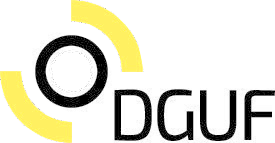Durch die Archäologie der Moderne zur modernen Archäologie
Identifier (Artikel)
Abstract
In den letzten Jahrzehnten werden mehr und mehr Relikte aus der Zeit zwischen 1500 bis 1950 dokumentiert. Es ist sehr wichtig, dass sich die Archäologie nun auch dem dunkelsten Kapitel der deutschen Geschichte zuwendet, dem Holocaust. Zugleich wurde jedoch versäumt, diese Epochen im deutschsprachigen Raum intellektuell und institutionell zu integrieren. Es wird nicht ausreichen, die Ur- und Frühgeschichte und die Mittelalterarchäologie durch Neuzeit und Moderne rein additiv bis in die Gegenwart zu verlängern. Hergebrachte chronologische, geographische und weltanschauliche Kategorien tragen zur Zersplitterung und Einengung der in der Archäologie Tätigen bei. Ein solches Wissenschaftsverständnis sperrt zudem grosse Teile der Bevölkerung von Teilhabe und Mitwirkung an Forschung aus. Es sind die thematischen Klammern der Sonderforschungsbereiche und neue Forschungsfelder wie Landschaftsarchäologie, Kulturmanagement, „Citizen Science“ und „Public Archaeology“, auf denen die Archäologie ihr Potenzial als Transdisziplin zwischen Natur- und Humanwissenschaften und als Vermittlerin in heterogenen Gesellschaften beweisen kann. Zuletzt haben anglo-amerikanische Archäologen und Anthropologen westliche Raum-, Zeit- und Wertekonzepte hinterfragt und damit auch fundamentale Strukturen unserer Gesellschaften. Auf dem Weg zu einer modernen Archäologie müssen wir nicht nur patriarchal-hierarchische und kolonial-eurozentristische Haltungen sowie einseitig weltanschauliche Perspektiven überwinden, sondern auch verständlicher kommunizieren. Ziel ist die Vernetzung aller, um im Raum-Zeit-Kontinuum alle und alles besser zu verstehen.
Statistiken








